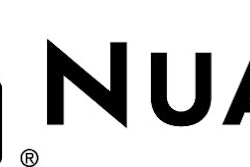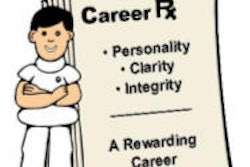Essentially every physician should realize that he or she will need to acquire an electronic medical record (EMR) application one day. Many reasons are commonly given for such an acquisition: better medical care, increased office efficiency, increased physician revenue, decreased expenses, more free time, and numerous others. All of these are clearly major benefits of getting on board the EMR train.
In fact, if you thought the issues through carefully, you could easily develop a multipage list, because the benefits are that great.
However, there are more colorful reasons that many do not consider. Let's see if we can analyze some of the less frequently considered issues.
The lure of success
To put some of these benefits in perspective let's analyze an industry other than medicine. Politicians spend fortunes to have polls taken showing that they are more popular than their competitor. The number of polling companies is almost as great as the number of EMR vendors. Why are these polls so popular? In my opinion, it is because politicians believe, probably correctly, that voters will more likely vote for a winner than they will for the loser.
The same is true for doctors. The populace wants to associate with a winning physician. But who is this populace, when it comes to physicians? The interested parties are broader than you might at first imagine. Patients are obviously included. But so are third-party payors, your referral sources, the local hospital, and even your employees.
Employees want to work in an EMR environment
Take employees, for instance. A recent employee offered notice stating that she liked the job, the office, her co-workers, the pay, the benefits, and the physician staff. At that time we were using Medical Manager (Emdeon Practice Services, Tampa, FL), which we purchased 15 years ago for billing and scheduling, and using Dragon NaturallySpeaking Medical (Nuance Communications, Burlington, MA) for the transcription of our notes.
Her issues? There was only one. She wanted to be employable not only this year, but for the next decade. Without the skill set necessary to work in a modern office, she realized that her value as a billing clerk in the medical community would continually diminish, but if she were to learn new skills (yes, from an employee's perspective being familiar with one or more EMR systems is a skill set), her value, and hence her salary and employability, in general would increase. We discussed the various options, including increasing her salary, increasing her responsibility level, and so on. However, she was adamant; she was going to work in an office where she could hone her skills as a billing clerk in an office with a state-of-the-art EMR application.
So, off she went to a practice using one of the modern application service provider (ASP) fully integrated EMR/practice management systems. In other words: off she went to a winning medical practice. It was a brand new office, with brand new technology, and that is what she wanted.
And, what do you know, that medical practice is thriving. Is that related to the EMR system? Is it caused by the EMR system? Or maybe it is just that the same mind-set that purchases a brand new, fully functional EMR application runs a well-organized medical practice -- one that is more likely to be a winning practice than others.
So, while it is true that some employees are hesitant to change their entire workflow, you will likely find that the better quality, more intelligent, more ambitious, and, in general, better employees will want this.
Shortly after this rather unexpected departure, we also implemented an EMR system. We have a number of rather computer-phobic secretaries and medical assistants. With our then current staff and existing technology, we were already as busy as my staff was able to tolerate. We were up to patient number 52,000, all maintained in Medical Manager, and had not had a meaningful change in technology in more than 15 years.
Two months later I had the opportunity to give a tour of our office to one of my long-time colleagues. I had him sequentially ask my front desk secretaries, the medical assistants, the one remaining billing clerk, as well as the physician's assistant the important question: Do you like it better with the new EMR system, or do you prefer the old one? Please note that essentially everyone in my office had been working between five and 10 hours of overtime per week during the previous two months because implementing a new combined EMR/practice management system truly is that much work.
The answer was universally the same but was stated using various phrases: "I'd never go back to a non-EMR office"; "It is amazing because it is so much easier and so much more efficient. I get to go home without having to worry about the work I left over"; and "I'm glad that Dr. Fishman spent his money buying it because now I have something to talk about at parties." These are all sentences I heard during the office tour. I did not hear one negative comment, with the obvious exception that the transition was "as hard as we expected it to be."
Essentially every business management guru tells you that human resources are the greatest asset of most businesses. The cost of employee turnover is astronomical, and in fact, in my opinion, the cost of excess employee turnover is substantially higher than is the cost of acquiring an EMR system.
Referral sources, part I: Your reputation
I have frequently been told by my patients that the doctor who sent them to me said (sometimes tongue in cheek) that they were afraid to have their patients visit me in my beautiful, spacious, waterfront office, because they would never want to go back to their referring physician's strip mall practice. I believe it was said at least partly in jest, because these same referral sources have sent me patients month after month, year after year, and I kept hearing the same story from their patients.
Similarly, the use of an EMR system will allow you to stand head and shoulders above your competitors. Yes, medicine is also a business, and the other physicians of your specialty in your local community are both your colleagues as well as your competitors, and if you're looking for more patients, improving your reputation in the community can only help.
When your patients return to their primary care physician or other referral source, and tell them of the sleek tablet computers that you talk into in the examination room, tell them of the office visit notes that you print up for them as they walk out the door, then mention to them that there was no wait in the office because of the efficiency produced by properly working technology, your referral sources will probably be a bit jealous of your working environment. Other points of interest that might be mentioned would include custom-printed patient instructions, the completed office notes that are available to the patients as they leave the office, and the capability to show them scanned radiographic pictures, and other similar graphics.
However, more importantly, your referral sources will probably realize, correctly, that it is a benefit to them to have their patients very happy with the doctors they are seeing, and they are more likely to continue sending more patients to you.
Referral sources, part II: Ahead of the curve
I don't want to pretend to know when the following scenario will occur in your community. However, on a daily basis throughout the U.S., primary care physicians are purchasing EMR systems. These applications have a lot of features, and one of these features is interoperability with other EMRs. So, once a primary care physician has an EMR system, they can share their medical records, including lab and radiology results, quite easily with other local physicians.
In your community, this local primary care physician is likely to be sharing his or her referrals with various specialists. You may be one of them, and you are happy to receive, let's say, 50% of the referrals.
Let's jump ahead another day, or a week, or a few months -- it probably will not be much longer than another couple of years. This primary care physician will be using one specific EMR system, but it really doesn't matter too much which one is being used, as long as it is one of a wide variety of applications that can connect with other programs, even though they may be written by competing vendors.
Once this primary care physician and other specialist practices have interoperable EMRs, the motivation for strengthening that referral pattern will be overwhelming. The correspondence between the two offices will be so streamlined that postage, phone calls, and delays in obtaining information will be problems of the past.
When the interconnected specialist receives a referral from this primary care physician, they will share the same medical record, and in many instance, the referring physician will have a copy of the specialist's medical record before their patient gets into his or her car in the parking lot.
The result? You've just stopped receiving your 50% of this doctor's referrals, unless, of course, you are the specialist with the new EMR system.
That's why I call it being ahead of the curve. It is my opinion that there will be a time in the not too distant future when enough primary care physicians will have EMR technology and the disruption of referral patterns will rapidly accelerate. It is my opinion that there will be a tremendous rush for specialists to obtain compatible technology, and there will be an inflection point in the graph of EMR adoption.
Selling or expanding your practice
In 2006 it is far from clear if there is any meaningful value in a medical practice, apart from the physicians in the practice. However, in the event that you have an interest in selling your practice, or even in hiring an associate physician, the probability of getting a reasonable price or any interest in the practice at all goes up astronomically with proper technology. First, most potential purchasers are likely to be younger physicians, and they are likely to have used an EMR system in their training, and they are likely to want to continue to do so.
Further, the efficiency of an office using EMR technology is likely to make your practice meaningfully more profitable, and this extra profit is what will be purchased by an incoming physician. This is not usually considered as part of the return on investment for an EMR system, but the increase in purchase price for your practice can more than make up for the EMR acquisition price.
A winning advantage
In the year 2006 it is rather clear that a state-of-the-art medical practice will be producing their medical records using an EMR system, in conjunction with voice recognition software. It will be connected to your local laboratory, pharmacies, and imaging facilities, as well as your hospital. It is rather clear that you'll be using a system such as this in the near future; we just don't know exactly when yet.
There are dozens of reasons to purchase an EMR system immediately, and in fact there are even a few reasons to delay such a purchase. However, not all of the reasons are as clear-cut as improving medical care, increasing income, and diminishing expenses. If you think about this for a while, you'll likely come up with some additional reasons to get an EMR system and give your practice a winning advantage.
By Dr. Eric S. Fishman
AuntMinnie.com contributing writer
September 26, 2006
Dr. Eric Fishman is an orthopedic surgeon in West Palm Beach, FL, and the founder of EMRConsultant, a firm that provides free online EMR consulting services to physicians and other healthcare professionals. He can be contacted via the firm's Web site, or by phone at 888-933-0001.
Related Reading
Workflow, communication tools offer new hope for productivity, August 1, 2006
EPI enables regional consolidated imaging record, June 28, 2006
Cardiac EMR implementation requires strategic planning, June 9, 2006
Disaster plan drives post-Katrina recovery for EMR-based group, May 23, 2006
Copyright © 2006 EMRConsultant



















